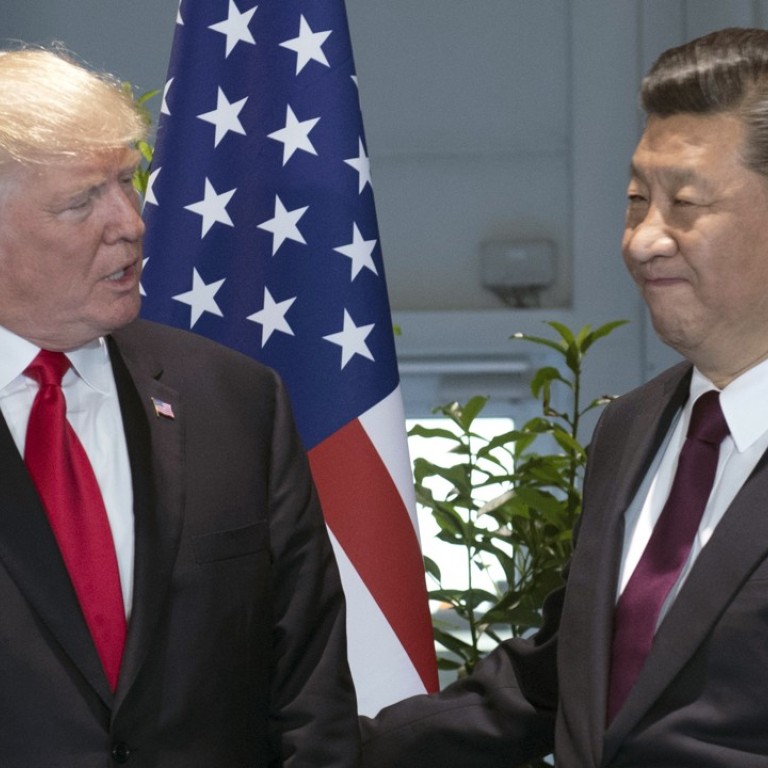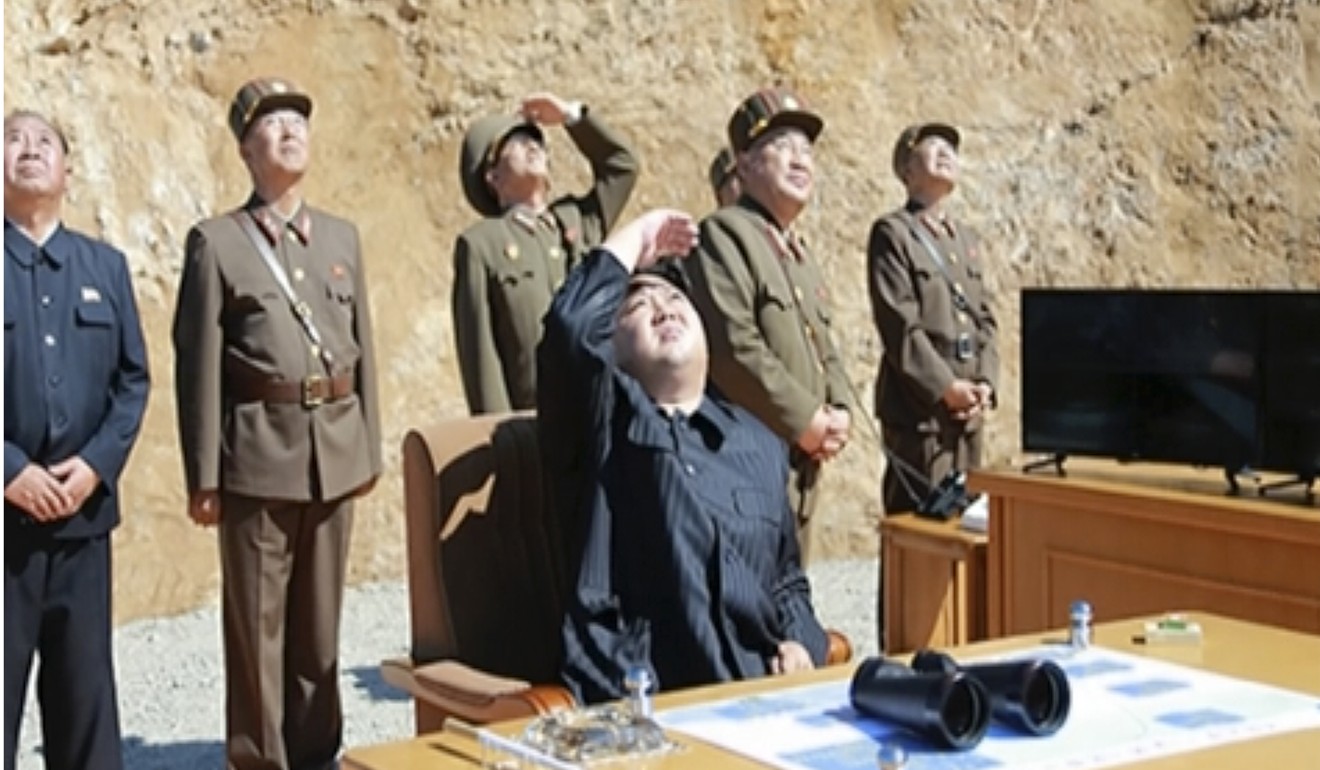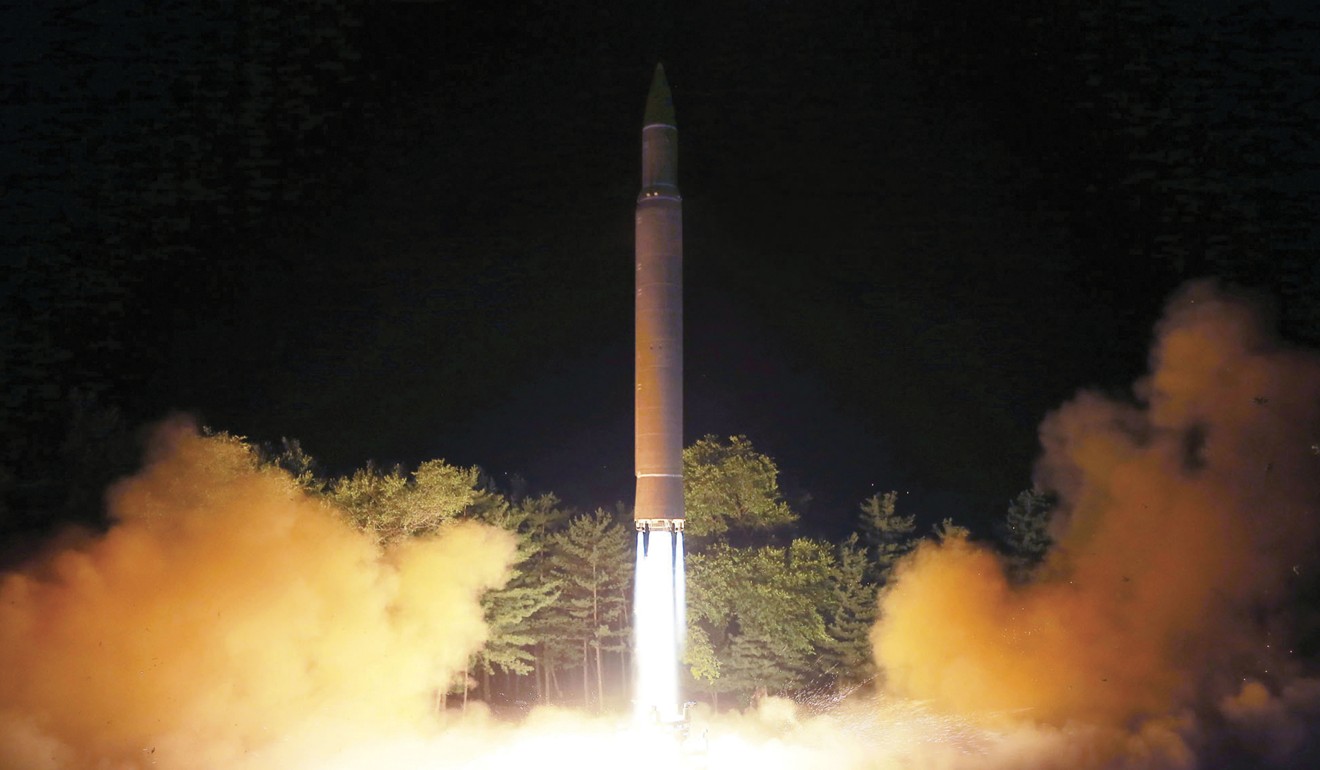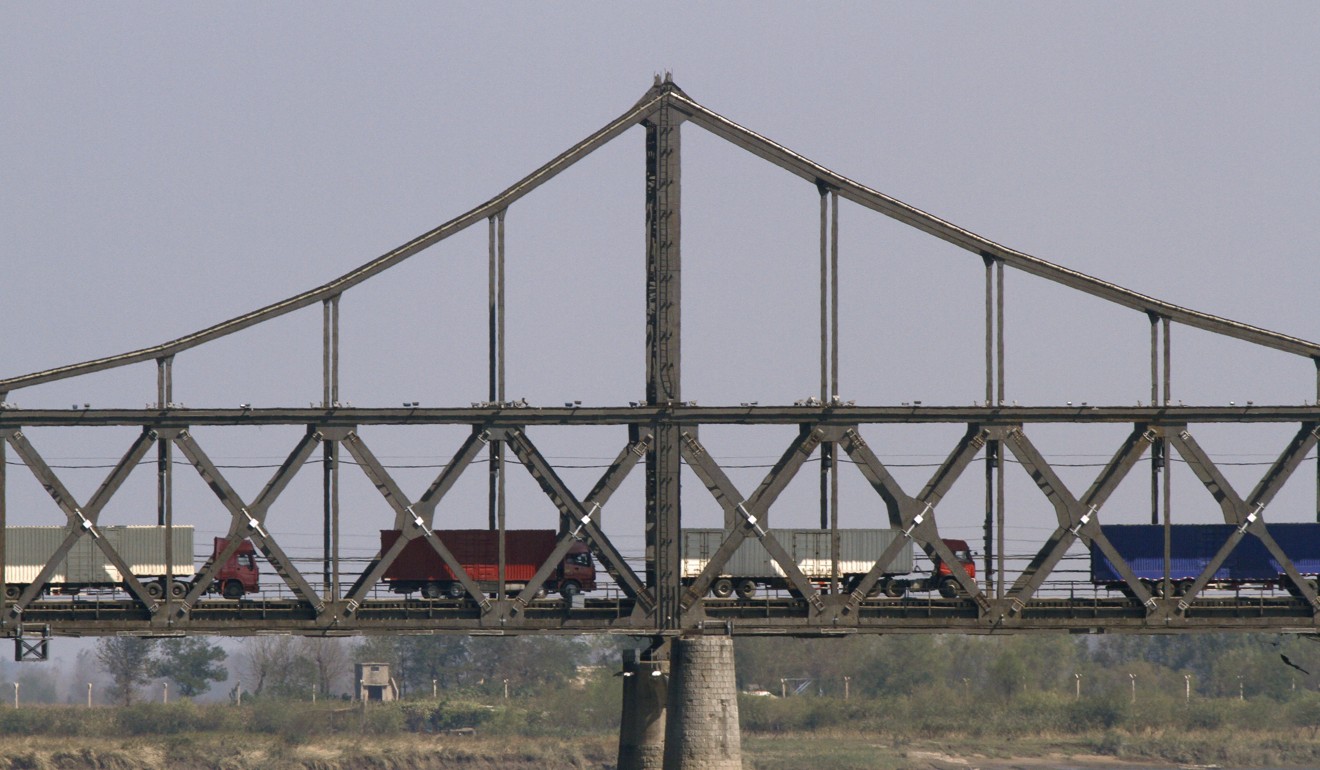
Will North Korea take China and US ‘right to the brink’?
Pyongyang regime’s nuclear missile programme could be a ‘make or break’ issue, analysts warn
Tensions over North Korea’s nuclear missile programme will take Sino-US relations “right to the brink” and could prove a “make or break” issue for the two countries, analysts warn.
“There have been signs that the promise of cooperation between the US and China seems to be breaking down,” Australian National University defence studies expert Dr Brendan Taylor said. “Unfortunately, it’s going to take going right to the brink for the US and China to start working together in a genuine and concerted way.”
After a fleeting honeymoon between US President Donald Trump and Chinese counterpart Xi Jinping following their meeting in Florida in April, the two countries have taken to blaming each other for Pyongyang’s march towards nuclearisation.
Taylor said Washington’s “inconsistent and erratic” approach had exhibited a level of uncertainty, as well as a lack of success.
North Korea had become an almost “make or break” issue in the Sino-US relationship, alongside the trade deficit, Dr Carla Freeman, an expert in Chinese foreign policy at Johns Hopkins University in Washington, said.
“Pyongyang has been an expert in playing countries off each other to get what it needs,” she said. “They are particularly good at creating strains in the US-China relationship to push their own agenda.”
She said there had been a “cacophony of statements” from different voices in Washington, with Trump posting comments on Twitter about China’s efforts or lack thereof to put pressure on North Korea, which counts China as its most important ally and trading partner.
In his latest tweet on the subject, fired off last Saturday, he said: “I am very disappointed in China ... They do nothing for us with North Korea, just talk. We will no longer allow this to continue.”
Washington has tiptoed towards levying “secondary sanctions” against North Korea – ones clamping down on Chinese firms doing business across the border – and Joshua Pollack, a nuclear and missile proliferation expert at the Middlebury Institute of International Studies at Monterey, in California, said there were indications Trump could use trade as a bargaining chip.
Secondary sanctions were the only feasible non-military option for the US, said Dr Sung-yoon Lee, a Korean studies professor at Tufts University in Boston, since the idea that America would outsource its North Korean policy to China was a “fool’s errand”.
“The Chinese will be indignant, so the US has been quite restrained in not doing this,” he said. “But [more action from China] is not going to happen unless the costs become unbearable on China.”
However, Lee said he did not expect further sanctions would derail the Sino-US relationship, because it was “too big to fail”.
China would be outwardly upset but would tolerate secondary sanctions, said Robert Manning, an Asia analyst at the Washington-based Atlantic Council think tank, because they would have little impact on its economy.

He said Beijing and Washington had been engaged in an unproductive “blame game”, but deterrence had proven to be an effective policy for dealing with North Korea since 1953.
“The one redeeming feature of the North Koreans is that they’re not suicidal, everything they’ve ever done is so the Kim dynasty, the regime, can survive,” he said.
Citing an increase in Chinese trade with North Korea in recent months, the Trump administration has imposed sanctions on two Chinese individuals, the China-based Bank of Dandong, and a shipping company to stem the flow of money to North Korea.
Data from China’s Ministry of Commerce shows trade between China and North Korea grew 13.7 per cent between January and May, while China Customs figures said it increased by 37.4 per cent increase in the first three months of the year.
Chinese officials have urged a return to the negotiating table, and for the US to accept its “dual suspension” approach, which calls for the US and South Korea to end joint military exercises – one is scheduled for this month – and for North Korea to suspend its nuclear programme.
“The common goal for China and the US is the denuclearisation of the Korean peninsula; this goal has been consistent,” said Dr Ren Xiao, an international studies professor at Fudan University in Shanghai. “The difference is how to achieve this goal.”

US officials at the Asean summit in Manila are expected to press China this weekend on harsher sanctions against North Korea, but Ren said the “pressure from the Americans will be in vain”.
Pollack said Pyongyang’s ongoing nuclear tests and missile launches – it launched its second intercontinental ballistic missile in a month on July 28 – appeared to have soured Trump’s hopes that Xi would have a deterrent effect.
The two countries were likely to “continue to limp along and half cooperate”, he said, despite Trump having made North Korea a centrepiece of his foreign policy.
“It’s Washington’s choice whether or not to make this the defining issue in US-China relations,” he said. “We’ll see who blinks first.”
While China had cooperated with UN Security Council resolutions on North Korea’s weapons programme, it would not cave in to US pressure, said Dr Chang Ching, a research fellow at the Society for Strategic Studies, a conservative think tank in Taipei.
“Beijing will never give up its own positions under pressure from the US,” he said. “North Korea is [a] headache for Beijing, but not a threat ... yet.”
Chang also cited the “mutual aid and cooperation friendship treaty” signed between North Korea and China in 1961, which is up for renewal in 2021, but added that North Korea did not have to be a diplomatic wedge between the US and China.

“Pyongyang is important to both sides, but could never be vital in the relations between Beijing and Washington,” he said
Analysts say China has multiple fears about the future of the Korean Peninsula: the threat of an unpredictable North Korea as a credible nuclear power, the potential downfall of Kim Jung-un’s regime and an ensuing refugee influx, greater military cooperation between South Korea and the US, and the possibility of a reunified Korea on its border that is friendly to the US.
Lee said North Korea was “very calculating and rational” and Kim was “sitting pretty right now”.
In the long-term, stopping North Korean nuclearisation would prove “virtually impossible”, he said, because the regime would not give up its nuclear weapons unless there was a change in leadership.
“Military power, nuclear power is really a non-negotiable ace card for the Kim regime, unless the regime is presented with the spectre of regime threat,” Lee said. “Things will have to get worse before they get better.”

